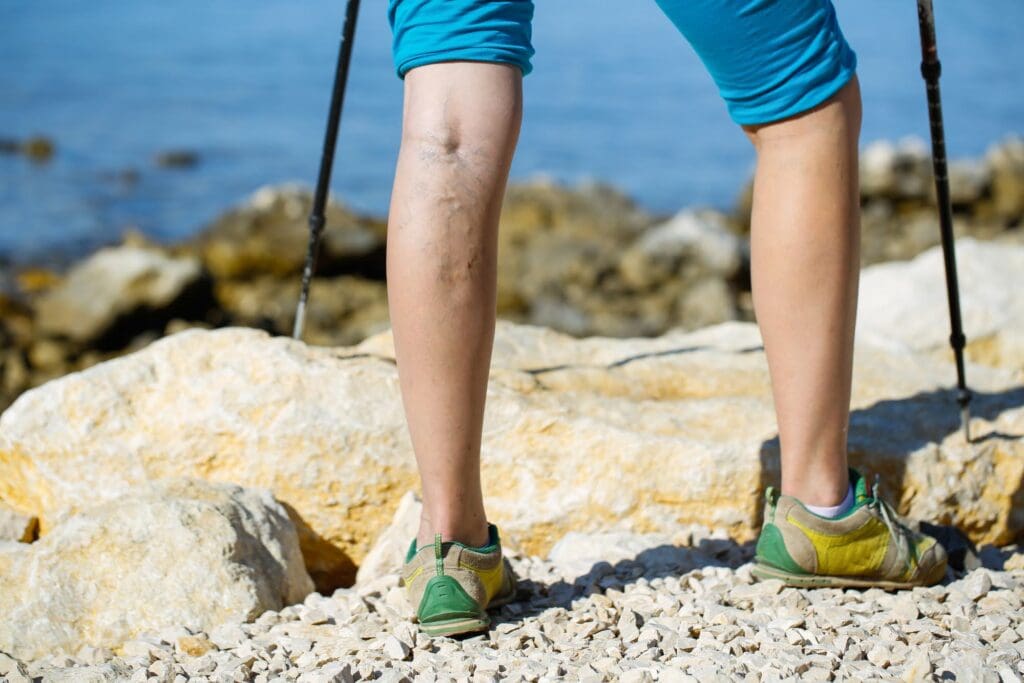RFA vs. EVLT: Which Is Right for Your Varicose Veins?

Varicose veins are a common condition that affect many individuals, leading to symptoms such as pain, swelling, and a feeling of heaviness in the legs. Left untreated, they can also result in complications like skin changes or ulcers. Fortunately, advances in medical technology provide effective, minimally invasive treatment options. Two widely used methods are Radiofrequency Ablation (RFA) and Endovenous Laser Treatment (EVLT). Understanding the differences between these procedures can help you determine which option may be best suited for your condition.
Understanding the Procedures
Both Radiofrequency Ablation and Endovenous Laser Treatment are outpatient procedures designed to treat venous insufficiency, the underlying cause of varicose veins. This condition occurs when vein valves fail to keep blood flowing efficiently toward the heart, leading to blood pooling in the lower extremities. These treatments work by closing off the problematic vein, allowing blood flow to reroute through healthier veins.
Radiofrequency Ablation uses heat generated by radiofrequency energy to collapse and seal the affected vein. During the procedure, a thin catheter is inserted into the vein under ultrasound guidance. Once in place, radiofrequency energy is delivered through the catheter, causing the vein walls to heat up and close. Over time, the body naturally absorbs the treated vein.
Endovenous Laser Treatment operates on a similar principle but employs laser energy instead of radiofrequency. A laser fiber is inserted into the vein, and concentrated light energy is used to seal it shut. The process also relies on ultrasound technology to ensure precise placement and targeted treatment.
Comparing Recovery Times
Recovery from either procedure is typically quicker and easier than from traditional vein stripping surgery. Both treatments allow patients to walk immediately after the procedure, which promotes blood circulation and supports healing. Most people can resume normal daily activities within a day or two, depending on their specific condition and overall health.
While the recovery experience for RFA and EVLT is comparable, some patients report slightly different sensations post-treatment. Radiofrequency Ablation tends to result in minimal discomfort, with only mild soreness or a feeling of tightness in the treated area. Endovenous Laser Treatment, on the other hand, may cause more bruising or tenderness due to the higher temperature of the laser energy. These side effects are temporary and can often be managed with over-the-counter pain relief.
Your physician may also recommend wearing compression stockings for a short period after either procedure to support recovery and enhance the treatment’s effectiveness.
Effectiveness and Long-Term Results
Both Radiofrequency Ablation and Endovenous Laser Treatment can be highly effective in treating varicose veins and relieving symptoms of venous insufficiency. Often, patients experience significant improvement in pain, swelling, and the overall appearance of their legs.
Radiofrequency Ablation may even cause slightly less post-procedural bruising or discomfort compared to Endovenous Laser Treatment, potentially due to the lower temperatures used in RFA. However, this difference is generally considered minor, and both treatments can provide excellent long-term results.
The choice between the two largely depends on the expertise of your medical provider, the anatomy of the veins being treated, and your individual preferences. An experienced physician can evaluate your condition through an ultrasound examination and guide you towards the most appropriate option for your case.
Choosing the Right Treatment for You
Determining whether to opt for Radiofrequency Ablation or Endovenous Laser Treatment should involve a detailed discussion with your healthcare provider. Both treatments offer minimally invasive solutions to varicose veins, with similar success rates and recovery experiences. Factors like the severity of your condition, the size and location of the affected veins, and your tolerance for potential side effects can all play a role in the decision.
Equally important is selecting a provider with expertise in venous treatments. A skilled specialist will ensure the procedure is performed safely and effectively, maximizing your comfort and confidence throughout the process. With proper care, both RFA and EVLT can restore your legs’ health and appearance, helping you return to an active, pain-free life.
If you are considering treatment for your varicose veins, reach out to us today. Our team is here to provide expert care and guide you toward the best solution for your needs.